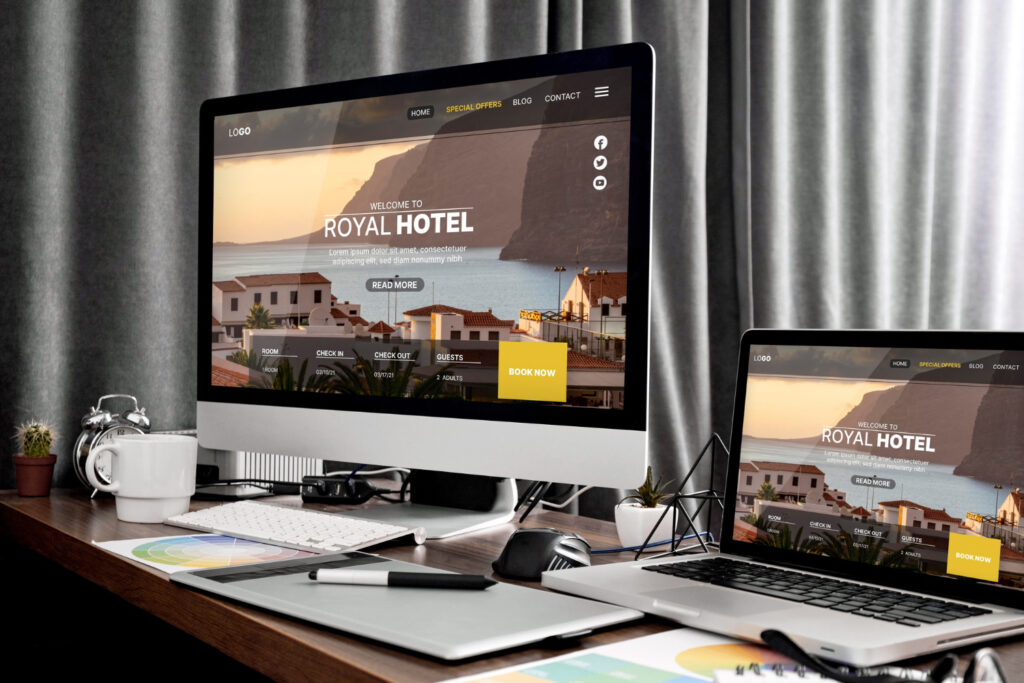In today’s digital world, having a website is essential for any business looking to succeed. However, just having a website exist is not enough. You need to drive digital traffic to your website, and one of the most effective ways to do that is through search engine optimization (SEO). SEO is the practice of optimizing your website to rank higher in search engine results pages (SERPs) for specific keywords and phrases. By optimizing your website for SEO, you can attract qualified leads to your website, leading to increased traffic, higher conversion rates, and ultimately, more revenue.

So, how do you optimize your website for SEO to attract qualified leads? Here are a few points we recommend considering:
KEYWORD RESEARCH
The first step in optimizing your website for SEO is to conduct keyword research. Keyword research involves identifying the words and phrases that people use to search for products or services similar to yours. By understanding what your target audience is searching for, you can create content that is relevant to their needs and interests. No sense in focusing on features and benefits that aren’t the actual pain points of your clients! There are many free and paid tools available to help with keyword research, including Google’s Keyword Planner, SEMrush and Hubspot.
ON-PAGE OPTIMIZATION
Once you have identified your target keywords, it’s time to optimize your website’s on-page elements. On-page optimization includes optimizing your website’s title tags, meta descriptions, headers, and content for your target keywords. Make sure your target keywords appear in these elements naturally and don’t overuse them as it may be flagged as keyword stuffing. IMPORTANT: You will fall behind in the ‘1st page of Google’ race if you don’t set up your website to comply with best practices.
CONTENT CREATION
Creating high-quality content is an essential component of SEO. Content examples are blog posts, infographics, videos, and social media graphics. By creating valuable, informative content that is relevant to your target audience’s interests, you can attract more qualified leads to your website – and make it much more likely that people will organically share your business with others. Be sure to include your target keywords naturally in your content to help search engines understand what your content is about.
LINK BUILDING
Link building involves getting other websites to link back to your website. The more high-quality, relevant websites that link to your website, the higher your website will rank in SERPs (search engine result pages). However, the process of link building should be done in moderation, and quality is key. Instead of going for quantity, focus on getting links from high-authority websites in your niche. When you’re searching for a business to provide a product or service, you yourself are likely to choose one that is considered an authority by others. Become authoritative for your field!

LOCAL SEO
If you have a physical location, local SEO can help attract qualified leads to your website. Local SEO involves optimizing your website for location-specific keywords, such as “coffee shop in downtown LA.” This can help your website rank higher in local search results, leading to increased foot traffic and sales. In conjunction with this, be sure to claim your Google Business profile, which will help tie in with Google Maps for further exposure.
MOBILE OPTIMIZATION
More and more people are using their mobile devices to browse the web – recent statistics put the number at roughly 50/50 split of mobile vs. desktop for internet research. Clearly, it’s essential to ensure your website is mobile-friendly. A mobile-friendly website will not only improve your SEO but also provide a better user experience for your visitors – but what does mobile-friendly mean? You’ve likely accessed an outdated website on your cell phone, frustrated with the graphic elements being messy, incongruous and text that is impossible to comprehend. All site builders now have mobile-friendly functionality so you can test as you build, to ensure a smoother end user experience.
USER EXPERIENCE
In addition to being mobile-friendly, your website should provide an excellent user experience. A great end user experience includes having a fast-loading website, easy navigation, and intuitive design. By providing a positive user experience, you can keep visitors on your website longer, leading to increased engagement and conversion rates.
Remember, SEO is an ongoing process, and it takes time to see results. If you’re sure you can tackle this yourself, take the guesswork out of it and let Blackwood Creative handle it!

